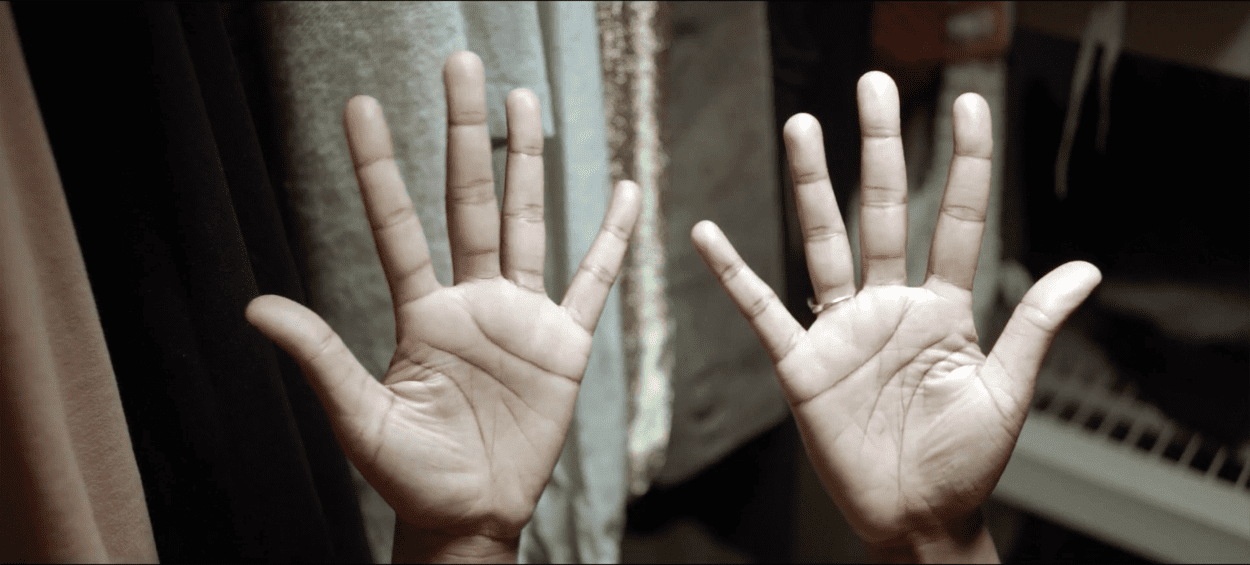“The Tuba Thieves” - Documentary Film Review
This review was originally posted on Film Obsessive.
From 2011-2013, tubas were being stolen from high schools all across Los Angeles. It’s a humorous premise. Tubas aren’t exactly a hot commodity (I can say that as a former tuba player), nor are they particularly sought-after goods that usually warrant theft. A film titled The Tuba Thieves would likely give audiences the impression that this is a true-crime documentary explaining the ins and outs of tuba thievery in the early 2010s. While the film does tell this strange story, the documentary is more of an experimental soundscape of life in Los Angeles. Presented in open captions and structured like a poem of everyday noises, The Tuba Thieves is an experience that transcends the screen.
There’s a difference between subtitles and open captions. Both are a means of making the auditory components of visual media accessible to people in the d/Deaf community. The simple way of describing their difference is that subtitles can be turned on or off. They’re almost like an extra component of the film. Open captions are built directly into a movie, can’t be turned off, and exist as a crucial component of the film. The Tuba Thieves is presented entirely in open caption format. Every single sound is accounted for and no piece of dialogue is written incorrectly. These open captions are a work of art on their own, carefully written to paint pictures of the cacophony of sounds that exist.
Image courtesy of Derek Howard
For those who are part of the hearing community, the film is an almost itemized list of what they experience every single day. The open captions draw attention to sounds that, in other media or in our daily lives, may have been written off as white noise. Many people in the hearing community have gotten used to watching their television with subtitles, but most of the content they’re watching is dialogue-heavy. The hearing viewer isn’t relying on the subtitles to get the full experience of the soundscape of the content they’re watching. The Tuba Thieves doesn’t have much dialogue. A few poems are recited and some conversations between friends are scattered throughout, but for the most part, the audience is left to listen to the world around them.
With the mystery of the missing tubas serving as the film’s roadmap, the viewer is presented with a series of vignettes that center on sound or silence. Our entire lives ebb and flow between noise and the absence of it, but rarely does one sit and focus solely on the sounds. Music courses through the veins of The Tuba Thieves. Not just the rumble of the eponymous low brass instrument, but marching bands, punk bands, and Mariachi duos. Music isn’t exclusively for the hearing community. It’s something that can be felt or, in the case of The Tuba Thieves, experienced visually.
Perhaps above all, The Tuba Thieves makes the case for accessibility. Writer-director Alison O’Daniel wrote an opinion piece for Variety in 2023 when this film was premiering at Sundance. It’s a plea for accessibility for accessibility’s sake. It asks movie theaters, festivals, filmmakers, and the general public to listen. Far too often, people shout to make their voice the loudest in the room. They want to be heard, but that’s not the same as being listened to. There’s an intrinsic activeness that comes along with listening. To listen is to absorb, reflect, and process. That’s what The Tuba Thieves asks of its audience. To take in the symphony of images, sounds, and ideas that are presented over the course of these ninety minutes and process their meaning. Who are we if we do not listen? What have we lost?
Image courtesy of Derek Howard
For all of The Tuba Thieves’ imaginative storytelling and compelling vignettes, there’s a small bit of disappointment when the film comes to an end. Even though it becomes clear early on that the documentary isn’t fully about the missing tubas in Los Angeles, the title does build a certain expectation that there will be a resolution about why the instruments were taken. That omission does feel like a bit of a letdown, simply because the crime itself is so strange and many people probably weren’t aware of it prior to the film. Even though it’s obvious that this isn’t the story of the titular tuba thieves, it’s hard to fully let them go.
There’s no other film in recent memory (or maybe ever) that’s structured quite like The Tuba Thieves. It breaks all the expected norms of documentary work and creates a bold listening experience that invites the audience to become an active participant in the film itself. It’s an ode to music, life, and Los Angeles that must be heard to be understood.
Follow me on BlueSky, Instagram, Letterboxd, & YouTube. Check out Movies with My Dad, a new podcast recorded on the car ride home from the movies.


